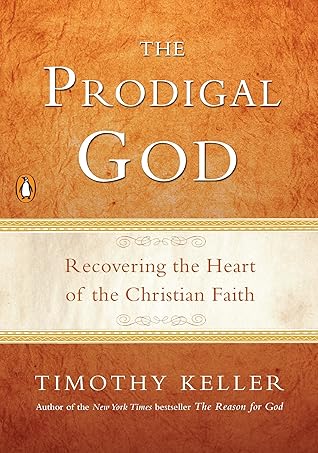More on this book
Community
Kindle Notes & Highlights
Read between
January 30 - February 6, 2022
The father’s welcome to the repentant son was literally reckless, because he refused to “reckon” or count his sin against him or demand repayment.
The targets of this story are not “wayward sinners” but religious people who do everything the Bible requires. Jesus is pleading not so much with immoral outsiders as with moral insiders. He wants to show them their blindness, narrowness, and self-righteousness, and how these things are destroying both their own souls and the lives of the people around them.
The crucial point here is that, in general, religiously observant people were offended by Jesus, but those estranged from religious and moral observance were intrigued and attracted to him.
The kind of outsiders Jesus attracted are not attracted to contemporary churches, even our most avant-garde ones. We tend to draw conservative, buttoned-down, moralistic people.
If the preaching of our ministers and the practice of our parishioners do not have the same effect on people that Jesus had, then we must not be declaring the same message that Jesus did. If our churches aren’t appealing to younger brothers, they must be more full of elder brothers than we’d like to think.
JESUS uses the younger and elder brothers to portray the two basic ways people try to find happiness and fulfillment: the way of moral conformity and the way of self-discovery.
So we have two sons, one “bad” by conventional standards and one “good,” yet both are alienated from the father. The father has to go out and invite each of them to come into the feast of his love. So there is not just one lost son in this parable—there are two.
it’s not his wrongdoing but his righteousness that is keeping him from sharing in the feast of the father.
Though the older son stayed at home, he was actually more distant and alienated from the father than his brother, because he was blind to his true condition.
The first thing we need is God’s initiating love. Notice how the father comes out to each son and expresses love to him, in order to bring him in. He does not wait for his younger son on the porch of his home, impatiently tapping his foot, murmuring, “Here comes that son of mine. After all he’s done, there had better be some real groveling!” There’s not a hint of such an attitude. No, he runs and kisses him before his son can confess. It’s not the repentance that causes the father’s love, but rather the reverse. The father’s lavish affection makes the son’s expression of remorse far easier.
When Pharisees sin they feel terrible and repent. They may punish themselves and bewail their weakness. When they finish, however, they remain elder brothers. Remorse and regret is just a part of the self-salvation project. Pharisaical repentance doesn’t go deep enough to get at the real problem.
To truly become Christians we must also repent of the reasons we ever did anything right.
If the wrongdoer has to do something to merit it, then it isn’t mercy, but forgiveness always comes at a cost to the one granting the forgiveness.
Both the worldly life of sensual pleasure and the religious life of ethical strictness fail to give the human heart what it is seeking.


